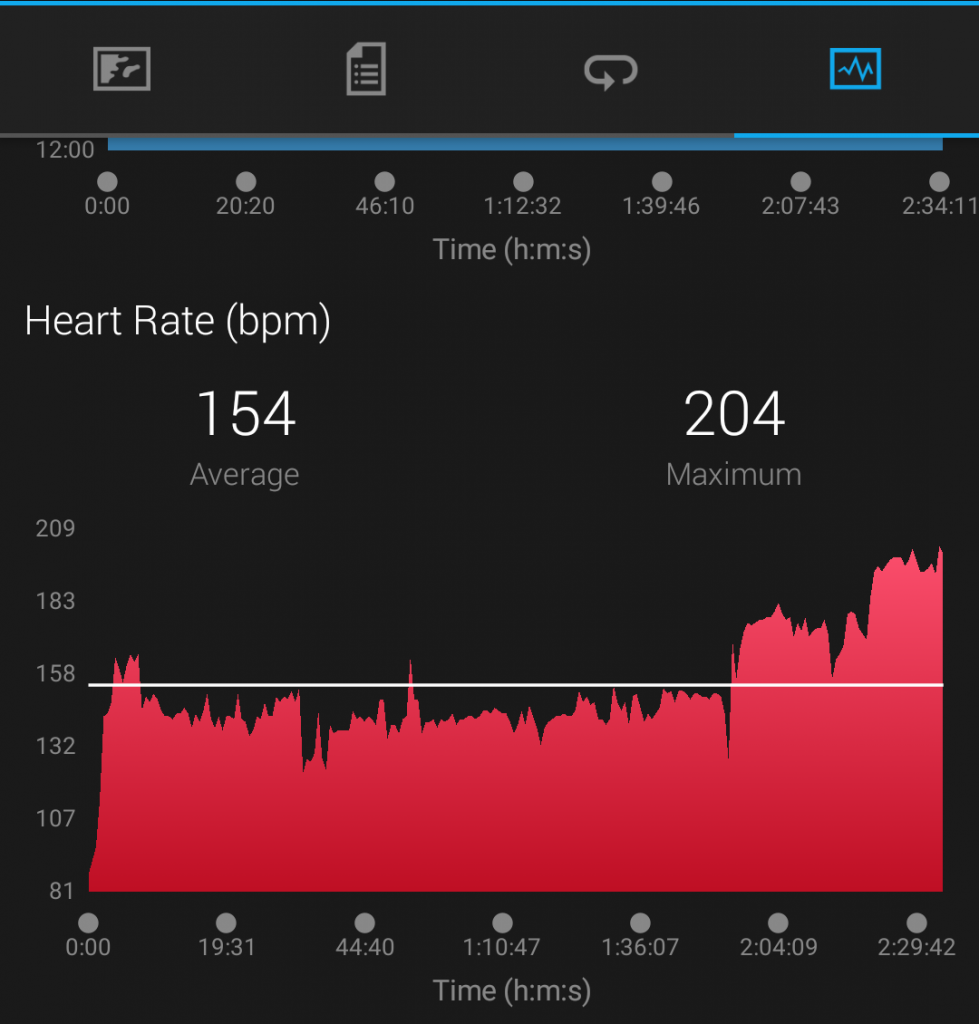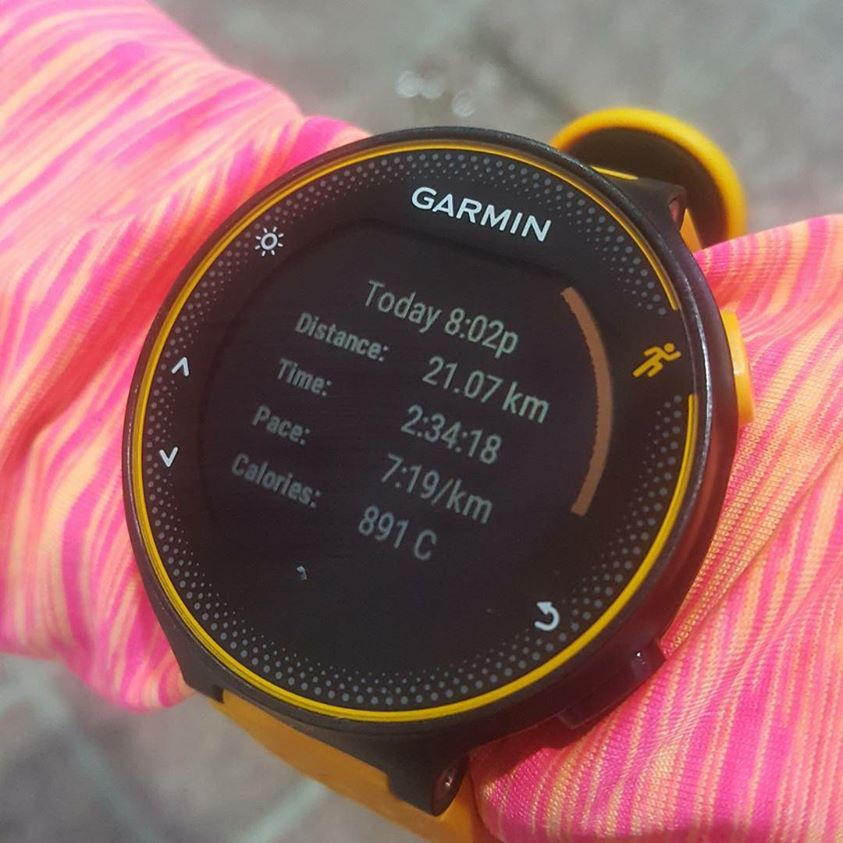Running uses the highest muscle group, and your heart gets to work a lot. Running does change your heart as the heart is a muscular organ. As you exercise, your heart gets stronger – supposedly, but how do you ensure that what you do is not too much for your heart?
Off late, as a leisure runner, I check my heart rates religiously while running. I would like to run faster, do not want to under-train, do not want to over-train either. Over-training can cause body injuries, and the heart is one of them.
I ran the half marathon at the Fire Fighter Cyberjaya Night Half Marathon 2017 and learned more about my heart. The first 11km run was good – I managed to maintain a good speed and the heart rate was under 7mins/km and 150bpm respectively, but after the 12km, my speed slowly dropped and went downhill 19km onwards. I had to take it slow as my heart rate was high – above 170bpm at 19km. Although there are many articles brushing off the Heart Rate Training, I don’t think running in high heart rate is good either.
I finished at 2:34:58 net time, my new personal best, 12th for my category and 32nd overall women 21km. I was happy to finish with no injuries but the high heart rate was a concern to me.
1. So, that brings me to the question on what is a good heart rate while running?
- First, know your Resting Heart Rate(RHR). The best time to measure is after you get of bed in the morning. The average RHR for an adult is within 60-100 beats per min (bpm). It is said the RHR is lower for athletes ranging from 40-60. bpm. Higher reading just means your heart works harder to circulate blood in your body. So, lower RHR indicates a better health.
- Second, know your Max Heart Rate (MHR) which is 220 – age. Try not to work out your heart too hard so avoid running beyond your MHR.
- Third, know the heart rate range for different types of run
- Easy or Recovery Running – 55%-65% of MHR
- Aerobic Running (marathon race pace) – when your body has sufficient oxygen and exhaling carbon dioxide and water : 75%-80% of MHR
- Anaerobic Running – when your run without enough oxygen. This is when your body produces not only carbon dioxide and water, but also lactate : 80%-87% of MHR
- There are VO2 Max and Red Zone – I would not cover this as a leisure runner. Dive into this when you want to improve speed or want to be the elite runner or an athlete.
More info at http://www.meet-your-running-goals.com/heart-rate-training-zone.html
2. What is a good heart rate to run?
Other than the above guidelines based on types of run, you can follow the guideline by heart.org – by age, as copied below :
| Age | Target HR Zone 50-85% | Average Maximum Heart Rate, 100% |
|---|---|---|
| 20 years | 100-170 beats per minute | 200 beats per minute |
| 30 years | 95-162 beats per minute | 190 beats per minute |
| 35 years | 93-157 beats per minute | 185 beats per minute |
| 40 years | 90-153 beats per minute | 180 beats per minute |
| 45 years | 88-149 beats per minute | 175 beats per minute |
| 50 years | 85-145 beats per minute | 170 beats per minute |
| 55 years | 83-140 beats per minute | 165 beats per minute |
| 60 years | 80-136 beats per minute | 160 beats per minute |
| 65 years | 78-132 beats per minute | 155 beats per minute |
| 70 years | 75-128 beats per minute | 150 beats per minute |
3. What can affect your heart rate while running?
- lack of sleep
- stress and fatigue
- dehyration
Make sure you get enough sleep, rest and hydrate well days before you run.
4. Warning signs you must not ignore while and after a run that can relate to your heart
- chest pain
- dizziness
If you experience any of the above, see a doctor. Although there are not many casualties pertaining to heart diseases or heart attacks at running events, but little things that have small effects on the heart like scaring tissue can hurt your heart in long run.
You can measure your heart rate the conventional way – by counting your pulse on your wrist within 30 secs and multiply by two. Or you can invest and use tools or apps that help you track your heart rate when you run. It can help you improve performance.
There are many mixed opinion about Heart Rate Training and the risks involved, so it is hard to know what is right for yourself. Therefore, listen to your heart when you run.
Run your heart ❤ out but do make your heart ❤ happy! Cheers.



